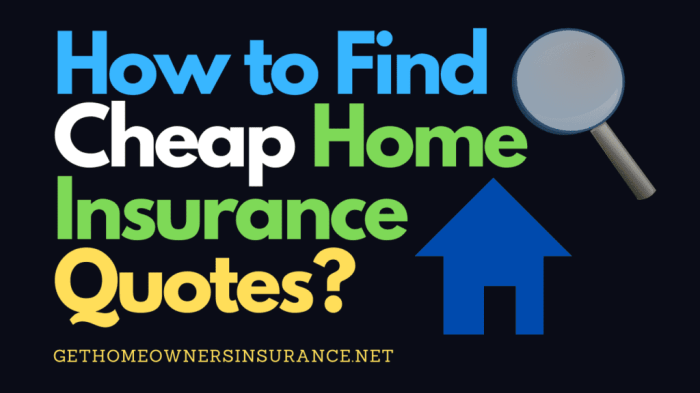The search for the perfect auto and homeowners insurance often feels like navigating a maze. Understanding the nuances of coverage, comparing prices from various providers, and deciphering policy jargon can be overwhelming. This guide aims to illuminate the path, providing a clear and concise overview of how to secure the best auto homeowners insurance quotes tailored to your specific needs. We’ll explore the factors influencing costs, the benefits of bundling, and how to navigate the quote process efficiently and effectively.
From comparing leading insurance providers and understanding their coverage highlights to identifying strategies for lowering premiums and avoiding common pitfalls, we’ll equip you with the knowledge to make informed decisions. We’ll also delve into the critical aspects of policy coverage and exclusions, ensuring you’re fully aware of what’s protected and what’s not. Ultimately, this guide empowers you to find a reliable insurer offering the best value for your investment.
Bundling Auto and Homeowners Insurance

Bundling your auto and homeowners insurance policies with a single insurer is a common practice that often presents significant financial advantages. However, it’s crucial to weigh these benefits against potential drawbacks before making a decision. Understanding the nuances of bundled policies will help you determine if this approach aligns with your specific needs and risk tolerance.
Bundling auto and homeowners insurance typically involves purchasing both policies from the same insurance company. This often results in a discount on your overall premium, representing a key advantage. However, the extent of savings can vary significantly depending on several factors, including your individual risk profile, the insurer, and the specific coverage levels selected.
Advantages of Bundled Insurance Policies
Bundling policies frequently leads to considerable cost savings. Insurers often offer discounts ranging from 5% to 25% or more on bundled premiums. These discounts incentivize customer loyalty and streamline administrative processes for the insurance company. Furthermore, managing both policies through a single provider simplifies billing and communication, making policy management more convenient. The ease of contact with a single point of contact for claims is also a valuable benefit.
Disadvantages of Bundled Insurance Policies
While the savings are appealing, bundling also presents potential drawbacks. Choosing a bundled policy may limit your options. You might miss out on better rates or coverage offered by specialized insurers who may offer more competitive options for either your auto or homeowners insurance separately. Additionally, a single claim on either your auto or home insurance could impact your overall premium for both policies in the future, raising your rates for both even if only one was affected.
Comparative Illustration of Bundled vs. Separate Policies
Consider this illustrative example: Let’s assume Sarah has a clean driving record and owns a modest home in a low-risk area. Separately, her auto insurance quote from Company A is $800 annually, and her homeowners insurance quote from Company B is $1200 annually, totaling $2000 per year. If she bundles with Company C, which offers a 15% discount on bundled policies, her total cost would be $1700 (assuming a combined quote of $2000 before discount). This represents a $300 annual saving.
However, if Sarah lived in a high-risk area prone to natural disasters, her homeowners insurance might be significantly higher, even with a bundled discount. Let’s say her separate homeowners insurance quote increases to $2500, while her auto insurance remains at $800. Bundling with a 10% discount might still result in a total cost higher than separating her policies with different insurers who offer lower individual premiums. This scenario highlights the importance of comparing quotes across various insurers before committing to a bundled policy.
Finding Reputable Insurance Providers

Choosing the right insurance provider is crucial for securing your financial well-being. A reputable company offers not only competitive rates but also reliable service and claims handling. Understanding how to identify a trustworthy insurer can save you time, money, and potential frustration in the long run.
Choosing a reputable insurance provider involves careful consideration of several key factors. It’s not simply about the cheapest premium; it’s about finding a company that will be there when you need them most.
Identifying Reliable Insurance Companies
A reliable insurance company demonstrates financial strength, positive customer reviews, and a commitment to fair claims handling. Several factors contribute to this assessment.
- Financial Strength Ratings: Look for companies with high ratings from independent rating agencies like A.M. Best, Moody’s, Standard & Poor’s, and Fitch. These agencies assess the insurer’s ability to pay claims. A high rating, such as A+ or AA, indicates strong financial stability.
- Customer Reviews and Complaints: Check online review platforms like the Better Business Bureau (BBB), Yelp, and Google Reviews to gauge customer satisfaction. Look for patterns in complaints and the company’s response to negative feedback. A high volume of negative reviews or unresolved complaints should raise concerns.
- Claims Handling Process: Research the company’s claims process. Look for information on their website about how they handle claims, the speed of processing, and their customer service responsiveness during the claims process. A transparent and efficient claims process is a sign of a reliable insurer.
- Length of Time in Business: While not the sole determining factor, a longer history in the insurance industry can suggest greater stability and experience. However, this should be considered in conjunction with other criteria.
- State Licensing and Regulation: Ensure the company is properly licensed and regulated in your state. You can typically verify this information through your state’s Department of Insurance website.
Resources for Researching Insurance Providers
Several resources are available to help consumers research and compare insurance providers. Utilizing these resources can significantly aid in the decision-making process.
- Independent Rating Agencies: A.M. Best, Moody’s, Standard & Poor’s, and Fitch provide financial strength ratings for insurance companies. These ratings offer an objective assessment of the insurer’s financial stability.
- Consumer Review Websites: Websites such as the Better Business Bureau (BBB), Yelp, and Google Reviews provide platforms for customers to share their experiences. These reviews offer valuable insights into customer service, claims handling, and overall satisfaction.
- Your State’s Department of Insurance: Your state’s Department of Insurance website provides information on licensed insurers, consumer complaints, and financial solvency data. This is a valuable resource for verifying a company’s legitimacy and track record.
- Independent Insurance Agents: Independent agents often work with multiple insurance companies, allowing them to provide comparisons and recommendations based on your specific needs. They can offer valuable insights and help navigate the selection process.
Wrap-Up

Obtaining optimal auto homeowners insurance quotes requires careful consideration of numerous factors, from individual needs and risk profiles to the intricacies of policy coverage and provider reputation. By diligently comparing quotes, understanding the influence of various factors on pricing, and leveraging strategies for cost reduction, you can secure comprehensive protection at a price that aligns with your budget. Remember to thoroughly review policy details and choose a reputable provider to ensure peace of mind. Armed with the information presented here, you can confidently navigate the insurance landscape and make the best choice for your home and vehicle.
FAQ Guide
What is the difference between liability and comprehensive coverage in auto insurance?
Liability coverage pays for damages to others’ property or injuries sustained by others in an accident you caused. Comprehensive coverage protects your vehicle against damage from non-collision events like theft, vandalism, or weather.
How often should I review my auto and homeowners insurance policies?
It’s recommended to review your policies annually, or whenever significant life changes occur (e.g., marriage, new home purchase, new vehicle).
Can I get a quote without providing my personal information?
While some basic information is usually required for a preliminary quote, you may be able to obtain a general estimate without fully completing the application.
What is the role of a claims adjuster?
A claims adjuster investigates and assesses the damage after an insurance claim is filed, determining the amount the insurance company will pay.